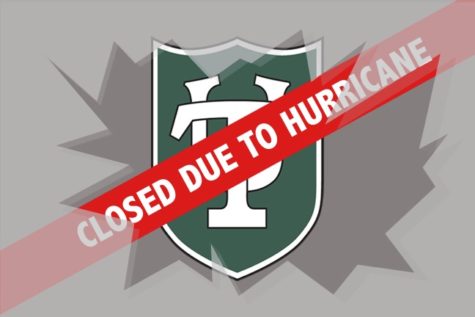OPINION | Given hurricane risks, Tulane should reconsider academic calendar
September 7, 2022

As the third week of classes at Tulane University ensues, freshmen are likely enjoying the normalcy of their first college semester. At the same time, sophomores, juniors and seniors — along with long-time New Orleans residents — may cautiously be checking the weather, clicking on Twitter notifications describing brewing tropical disturbances and reveling in the temperate weather with an undercurrent of suspicion.
Hurricane season spans June 1 to Nov. 30, but the start of Tulane’s academic year — this year, Aug. 22 — falls right within the Atlantic hurricane season’s peak, from mid-August to mid-October.
Last year, only a week into the 2021-2022 academic year, New Orleans braced for Hurricane Ida, which made landfall on southeastern Louisiana as a Category 4 hurricane on Aug. 29, 2021 — exactly 16 years after Hurricane Katrina wreaked havoc on the state.
Ida claimed 28 lives in Louisiana, devastated power grids along the Gulf Coast and forced thousands in the region to evacuate to safety. Tulane students were by no means insulated from the chaos that swarmed New Orleans and the Gulf Coast at large.
Many students evacuated, despite no mandatory order by the University, while others sheltered in place in residence halls. Those 1,500 students who remained on campus would eventually be bussed to Houston as Tulane eventually deserted campus following the storm.
Following Ida, Tulane University closed its doors for two weeks and then opted to resume classes online until the city was ready to welcome back residents.
In the wake of last year’s events and predictions that climate change will bring increasingly intense hurricanes, does it make sense for Tulane — located in a region highly susceptible to hurricane damages — to begin its academic year during peak hurricane season?
Tulane’s administration deserves praise for the information it gave to students and parents last year before, during and after Ida’s landfall. Tulane students remained physically unharmed during the storm. Further, the return to campus occurred much more quickly than initially expected, signifying that the university compiled all possible resources to repair damages to campus and its surrounding areas.
This year, Tulane upgraded its hurricane preparedness system by enlisting three separate forecasters and implementing more generators.
However, Tulane can only do so much to protect its community from the unpredictable forces of nature.
Most incoming and current students are likely privy to the hypothetical risks of hurricanes they could face. Unfortunately, students often may not understand the immense impacts of those risks until they experience them first-hand.
Tulane does not try to gloss over the fact that by enrolling at Tulane, students accept certain risks, responsibilities and obligations related to hurricane dangers. Students have access to Tulane’s Hurricane Guide, and Tulane families are asked to submit their own individualized evacuation plan in case of a highly risky event.
However, the importance of hurricane preparedness may get lost among the sea of forms and tasks incoming students are required to complete, especially if students and parents are not aware of the potential severity of these dangers. Tulane should reiterate the necessity of a hurricane plan during freshmen orientation, just in case students have not thought it through.
This year’s sophomores — only a week into their freshman year when Ida hit — may have not even finished hanging up posters in their dorm room or figured out where the Lavin-Bernick Center for University Life was before they had to pack up and leave campus for a month. Upperclassmen, hoping to have a normal year for the first time in a while, were in for a rude awakening as they jammed into friends’ cars or quickly booked flights and once again evacuated campus.
Hurricane break, or “hurrication,” as some opted to call it, looked different for everyone. Some students weathered the storm and later piled on to cramped buses; others allegedly jetted away on private planes; some went home and spent time with family or took extended road trips and couch-surfed with friends at other colleges; some may have watched Ida incur damages on their own homes and families.
Regardless of whether students’ experiences last year during the tumultuous time of Ida were glamorous or not, virtually all of the Tulane community was displaced.
Few things in life are predictable, but young adults in college don’t expect to pack up a suitcase one Friday or Saturday morning and figure out a game plan for the next month as their college city gets ravaged by a Category 4 storm.
It may be the case that if Tulane decided to begin its academic year in mid- or late September, much like UCLA or Northwestern University, we could avoid serious risks of mass evacuation and the varying degrees of trauma that are associated with the physical effects of hurricanes.
Postponing the university’s start date would not completely protect the Tulane community from any disaster, given that hurricane season lasts through October. But a move like this could prevent students from experiencing situations similar to last year’s pandemonium by moving them out of harm’s way when that harm is predictable.









Leave a Comment